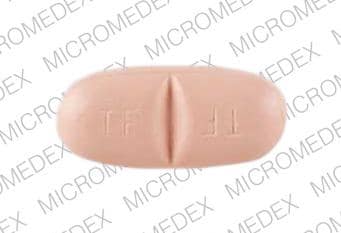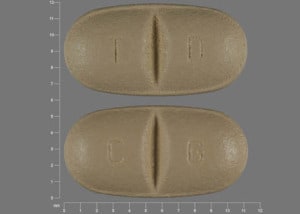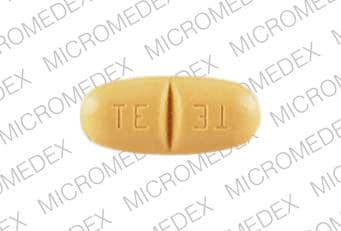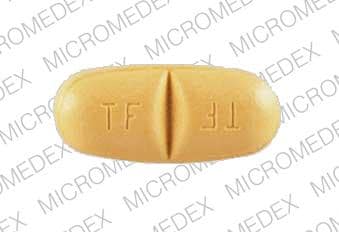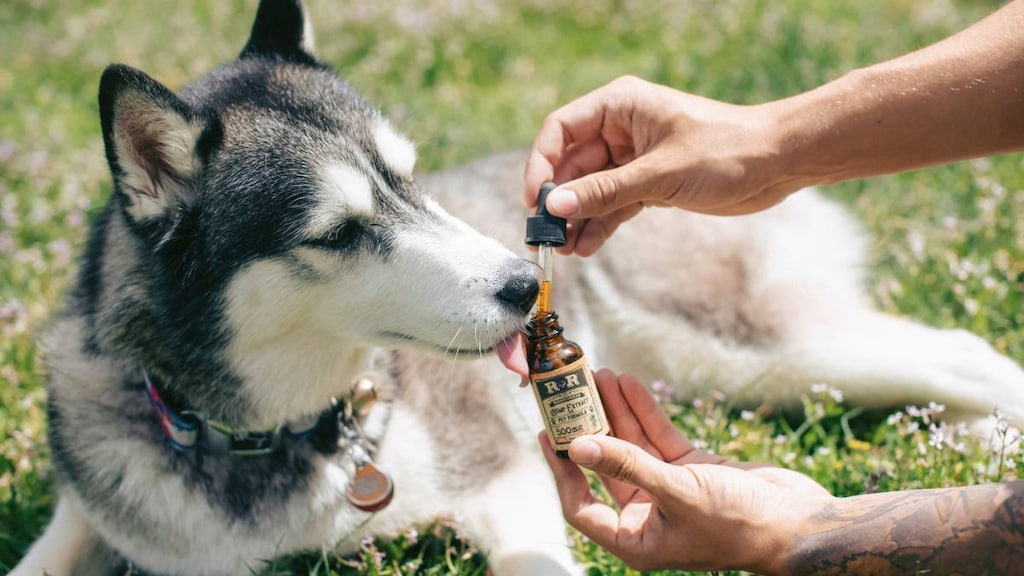What is Trileptal?
Trileptal is a prescription medicine used:
- alone or with other medicines to treat partial-onset seizures in adults
- alone to treat partial-onset seizures in children 4 years and older
- with other medicines to treat partial-onset seizures in children 2 years and older
It is not known if Trileptal is safe and effective for use alone to treat partial-onset seizures in children less than 4 years of age or for use with other medicines to treat partial-onset seizures in children less than 2 years of age.
What is the most important information I should know about Trileptal?
Do not stop taking Trileptal without first talking to your healthcare provider. Stopping Trileptal suddenly can cause serious problems.
Trileptal can cause serious side effects, including:
1. Trileptal may cause the level of sodium in your blood to be low. Symptoms of low blood sodium include:
- nausea
- confusion
- tiredness (lack of energy)
- more frequent or more severe seizures
- headache
Similar symptoms that are not related to low sodium may occur from taking Trileptal. You should tell your healthcare provider if you have any of these side effects and if they bother you or they do not go away.
Some other medicines can also cause low sodium in your blood. Be sure to tell your healthcare provider about all the other medicines that you are taking.
Your healthcare provider may do blood tests to check your sodium levels during your treatment with Trileptal.
2. Trileptal may also cause allergic reactions or serious problems which may affect organs and other parts of your body like the liver or blood cells. You may or may not have a rash with these types of reactions.
Call your healthcare provider right away if you have any of the following:
- swelling of your face, eyes, lips, or tongue
- painful sores in the mouth or around your eyes
- trouble swallowing or breathing
- yellowing of your skin or eyes
- a skin rash
- unusual brusing or bleeding
- hives
- severe fatigue or weakness
- fever, swollen glands, or sore throat that do not go away or come and go
- severe muscle pain
- frequent infections or infections that do not go away
Many people who are allergic to carbamazepine are also allergic to Trileptal. Tell your healthcare provider if you are allergic to carbamazepine.
3. Like other antiepileptic drugs, Trileptal may cause suicidal thoughts or actions in a very small number of people, about 1 in 500.
Call a healthcare provider right away if you have any of these symptoms, especially if they are new, worse, or worry you:
- thoughts about suicide or dying
- trouble sleeping (insomnia)
- attempts to commit suicide
- new or worse irritability
- new or worse depression
- acting aggressive, being angry, or violent
- new or worse anxiety
- acting on dangerous impulses
- feeling agitated or restless
- an extreme increase in activity and talking (mania)
- panic attacks
- other unusual changes in behavior or mood
How can I watch for early symptoms of suicidal thoughts and actions?
- Pay attention to any changes, especially sudden changes, in mood, behaviors, thoughts, or feelings.
- Keep all follow-up visits with your healthcare provider as scheduled.
Call your healthcare provider between visits as needed, especially if you are worried about symptoms.
Do not stop taking Trileptal without first talking to a healthcare provider.
- Stopping Trileptal suddenly can cause serious problems.
- Stopping a seizure medicine suddenly in a patient who has epilepsy may cause seizures that will not stop (status epilepticus).
Suicidal thoughts or actions may be caused by things other than medicines. If you have suicidal thoughts or actions, your healthcare provider may check for other causes.
Who should not take Trileptal?
Do not take Trileptal if you are allergic to Trileptal or any of the other ingredients in Trileptal, or to eslicarbazepine acetate. See below for a complete list of ingredients in Trileptal.
Many people who are allergic to carbamazepine are also allergic to Trileptal. Tell your healthcare provider if you are allergic to carbamazepine.
What should I tell my healthcare provider before taking Trileptal?
Before taking Trileptal, tell your healthcare provider about all your medical conditions, including if you:
- have or have had suicidal thoughts or actions, depression or mood problems
- have liver problems
- have kidney problems
- are allergic to carbamazepine. Many people who are allergic to carbamazepine are also allergic to Trileptal.
- use birth control medicine. Trileptal may cause your birth control medicine to be less effective. Talk to your healthcare provider about the best birth control method to use.
- are pregnant or plan to become pregnant. Trileptal may harm your unborn baby. Tell your healthcare provider right away if you become pregnant while taking Trileptal. You and your healthcare provider will decide if you should take Trileptal while you are pregnant.
- If you become pregnant while taking Trileptal, talk to your healthcare provider about registering with the North American Antiepileptic Drug (NAAED) Pregnancy Registry. The purpose of this registry is to collect information about the safety of antiepileptic medicine during pregnancy. You can enroll in this registry by calling 1-888-233-2334.
- are breastfeeding or plan to breastfeed. Trileptal passes into breast milk. Talk with your healthcare provider about the best way to feed your baby if you take Trileptal.
Tell your healthcare provider about all the medicines you take, including prescription and over-the-counter medicines, vitamins, and herbal supplements. Taking Trileptal with certain other medicines may cause side effects or affect how well they work. Do not start or stop other medicines without talking to your healthcare provider.
Know the medicines you take. Keep a list of them to show your healthcare provider and pharmacist when you get a new medicine.
How should I take Trileptal?
- Do not stop taking Trileptal without talking to your healthcare provider. Stopping Trileptal suddenly can cause serious problems, including seizures that will not stop (status epilepticus).
- Take Trileptal exactly as prescribed. Your healthcare provider may change your dose. Your healthcare provider will tell you how much Trileptal to take.
- Take Trileptal 2 times a day.
- Take Trileptal with or without food.
- Before taking Trileptal oral suspension shake the bottle well and use the oral dosing syringe that comes with your oral suspension to measure the amount of medicine needed. Trileptal oral suspension can be mixed in a small glass of water, or swallowed directly from the syringe. Clean the syringe with warm water and let it dry after each use.
- If you take too much Trileptal, call your healthcare provider right away.
What should I avoid while taking Trileptal?
- Do not drive or operate machinery until you know how Trileptal affects you. Trileptal may slow your thinking and motor skills.
- Do not drink alcohol or take other drugs that make you sleepy or dizzy while taking Trileptal until you talk to your healthcare provider. Trileptal taken with alcohol or drugs that cause sleepiness or dizziness may make your sleepiness or dizziness worse.
What are the possible side effects of Trileptal?
See “What is the most important information I should know about Trileptal?”
Trileptal may cause other serious side effects including:
- trouble concentrating
- problems with your speech and language
- feeling confused
- feeling sleepy and tired
- trouble with walking and coordination
- seizures that can happen more often or become worse, especially in children
Get medical help right away if you have any of the symptoms listed above or listed in “What is the most important information I should know about Trileptal?”
The most common side effects of Trileptal include:
- dizziness
- problems with vision
- sleepiness
- trembling
- double vision
- problems with walking and coordination (unsteadiness)
- tiredness
- rash
- nausea
- vomiting
These are not all the possible side effects of Trileptal. Tell your healthcare provider if you have any side effect that bothers you or that does not go away.
Call your doctor for medical advice about side effects. You may report side effects to FDA at 1-800-FDA-1088.
Trileptal Images
General information about the safe and effective use of Trileptal
Medicines are sometimes prescribed for purposes other than those listed in a Medication Guide. Do not use Trileptal for a condition for which it was not prescribed. Do not give Trileptal to other people, even if they have the same symptoms that you have. It may harm them.
You can ask your pharmacist or healthcare provider for information about Trileptal that is written for health professionals.
How should I store Trileptal?
- Store Trileptal film-coated tablets and oral suspension at room temperature between 15°C to 30°C (59°F to 86°F)
- Keep Trileptal film-coated tablets dry.
- Keep Trileptal oral suspension in the original container and use within 7 weeks of first opening the bottle. Shake well before using.
Keep Trileptal and all medicines out of the reach of children.
What are the ingredients in Trileptal?
Active ingredient: oxcarbazepine
Inactive ingredients:
- Film-coated tablets: colloidal silicon dioxide, crospovidone, hydroxypropyl methylcellulose, iron oxide, magnesium stearate, microcrystalline cellulose, polyethylene glycol, talc and titanium dioxide.
- Oral suspension: ascorbic acid, dispersible cellulose, ethanol, macrogol stearate, methyl parahydroxybenzoate, propylene glycol, propyl parahydroxybenzoate, purified water, sodium saccharin, sorbic acid, sorbitol, yellow-plum-lemon aroma.
For more information, go to www.pharma.us.novartis.com or call 1-888-669-6682.

